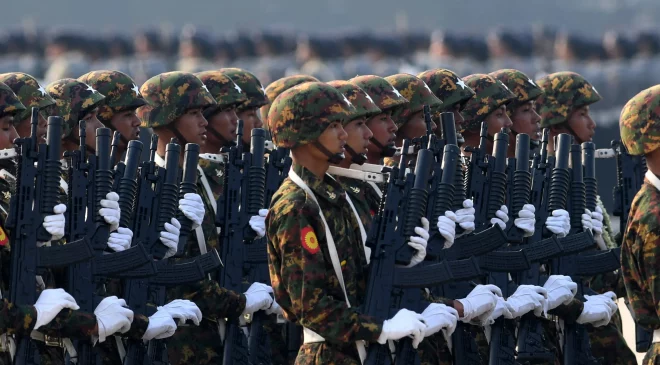
World leaders will gather in Jakarta in early September for the Association of Southeast Asian Nations (ASEAN) and East Asia Summits. Participants will include several G7 leaders and U.S. Vice-President Kamala Harris, while U.S. President Joe Biden will be in the region attending the G20 with several ASEAN and G7 leaders. A key agenda item for the ASEAN meetings will be Myanmar, where a military junta in power after a 2021 coup has engaged in a mass crackdown on opposition movements and ethnic armed groups.
The junta has committed arbitrary detentions, summary executions, torture, and unlawful military attacks, much of the brutality amounting to crimes against humanity and war crimes. A recent so-called partial pardon for ousted leader Aung San Suu Kyi was essentially a scam — six years were shaved off the 78-year-old’s 33-year prison sentence, deflecting attention from another extension of the “state of emergency” the junta has invoked to try to justify their crackdown.
Diplomatic efforts on Myanmar since its 2021 coup have floundered. ASEAN and its allies, as well as the U.N. Security Council, have failed to compel the junta to curb their abuses, just as they failed to hold the Myanmar military accountable for crimes against humanity and acts of genocide against Rohingya Muslims in 2016-2017, atrocities that are ongoing.
Despite ASEAN’s inability to unify on Myanmar, diplomats within and outside the bloc continue to refer to ASEAN’s defunct five-point consensus from April 2021 — which Myanmar’s junta repudiated days after agreeing to it — as a pretext for their own inaction.
Myanmar’s generals have been counting on everyone giving up. And while the people of Myanmar have not, most outside governments have obliged. Myanmar’s human rights crisis, however, is not insolvable, and it’s too horrendous to be ignored.
Enormous revenues still flow to the junta in dollars, euros, and other currencies from joint ventures, mostly extractive, involving companies across the world — not just China, but also countries that have condemned the junta, including Japan, South Korea, Singapore, and Malaysia. Transactions from natural gas revenues, the junta’s single largest source of foreign currency, have only recently been targeted by the United States, and have not yet been effectively blocked. Restrictions on the military’s purchases of aviation fuel need to be strengthened and more tightly enforced.
More effective efforts to block extractive revenues, paid in dollars and euros, would significantly reduce the junta’s foreign-currency income. These efforts would also likely reduce transactions to the junta in other currencies: most international banks need to comply with U.S. and EU rules so they can conduct U.S. dollar and euro transactions for other clients.
Myanmar’s military has not faced serious economic pain. Should anyone then wonder why it has so blatantly defied calls by neighbors, world powers, and the United Nations? Does it make any sense to expect a divided ASEAN to compel them to change?
It’s not too late to adopt effective measures to compel Myanmar’s military to change its conduct. It’s simply a matter of political will. The people of Myanmar haven’t given up. Neither should the rest of the world.
